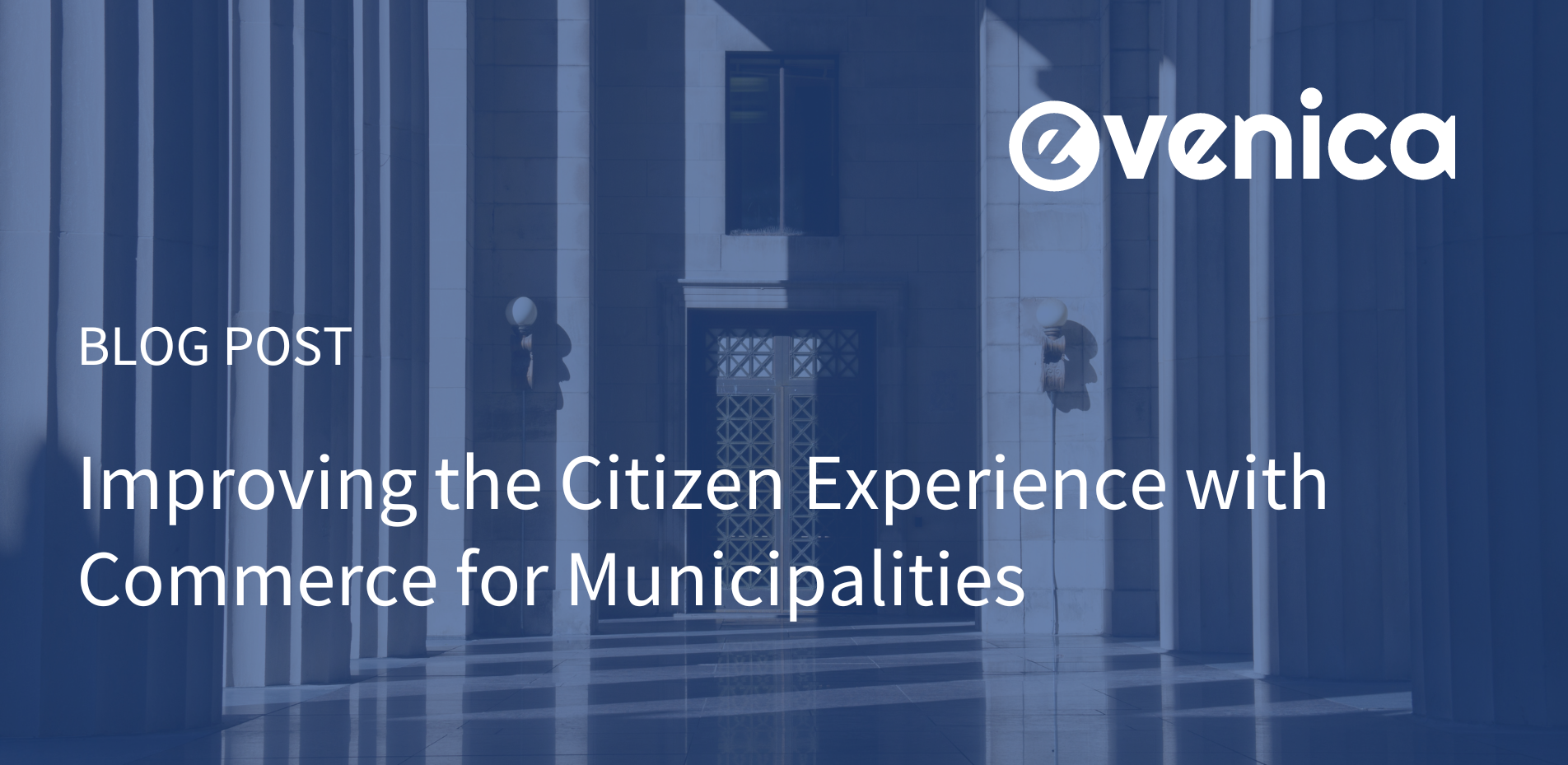
Government websites are often accused of being cluttered, slow, and difficult to navigate. That is not really fair given the number of services that must be provided on one platform. That being said, life and business continue to move online, and it is more important than ever for municipalities to consider how they can join the online trend and elevate their residents’ experience through effective use of digital channels.
Typically, residents only interact with their government because they must – either there is some pressing need for a city service, or some aspect of the city’s infrastructure needs to be fixed, or a service request must be made. Although this isn’t commercial activity per se, municipalities must use e-commerce best practices and technology when designing and implementing services on their website.
By adopting elements from the e-commerce playbook, thinking long-term about their digital strategy, and investing in infrastructure that includes an integrated e-commerce solution, municipalities can delight their residents with exceptional service, create efficiencies in their operations, and take important steps towards digitizing City Hall.
Booking Services
The social committee sat around the boardroom, hard at work planning the upcoming company event.
“So, we finalized the date. What time do we want to kick things off?” John asked.
“I’ve got the city website open on my screen. The park is available from 8am – 5pm. I can reserve and pay for everything right now!” Sebastian added.
Although it may not seem like traditional e-commerce activity, creating opportunities for residents to book services online is indeed e-commerce. Even though they are relatively small touchpoints, services such scheduling parking, booking a public park for a private event, or initiating applications for zoning variances or building expansions can make the difference between a resident having a positive view of the city’s level of service or a negative one.
Moving as many services as possible to online booking makes a lot of sense for municipalities. Not only does online booking free people from having to sit on hold as they wait to speak to a representative, but it also creates opportunities for more efficient administration and therefore better service at a reduced cost. It also municipalities to handle transactions and interactions in one hub, leading to a more holistic view of their residents.
Making Payments
“Honey, do you have our credit card? I think I gave it to you for Christmas shopping yesterday.”
Leslie paused her movie and got up to find her purse. “Yeah, I have it. What’s up?”
“Turns out I can just pre-pay for street parking for tonight’s party – it even allows me to reserve a spot close to the restaurant.”
One aspect of governance that more closely resembles traditional e-commerce is the collection of payments and fines from residents. Creating a technically sound and hassle-free touchpoint here will make it easier for people to pay the city, which will both improve their experience and influence related issues like unpaid tickets. This will require an e-commerce solution that must be integrated with other systems in City Hall.
In combination with online booking capabilities, having an e-commerce-enabled municipal website makes it possible for residents to self-service when fulfilling most of their needs – which may include everything from property taxes to dog licenses. Such an approach dramatically reduces the workload of city staff and orients their efforts from administration to customer service.
Digital Transformation in Governance
Once municipalities begin handling residents data through online bookings and online payments, moving to the digitization of City Hall becomes an incremental – although significant – change. The added pressure of having to move to remote operations for as many services as possible during the pandemic is an additional factor pushing municipalities online.
Here, vendor selection becomes extremely important. The data handled by cities is extremely sensitive and can affect not only the safety and privacy of residents, but also business interests and people’s careers. Therefore, data and network security become a prime consideration. Additionally, today’s municipalities are 24/7 operations – aside from obvious cases like fire and police services, residents live in a world where things are available almost immediately and they expect that same level of service from their municipality. This means reliability and uptime become prime considerations as well – providing the same quality of service as familiar websites like Amazon and Wikipedia will create positive experiences with residents.
Why Microsoft and Evenica?
Although there are many e-commerce solutions and providers on the market, only a few meet the stringent security and reliability criteria required by governments. Scale is another major consideration – solutions must work for potentially hundreds of thousands or millions of people. Of the solutions available, Microsoft Dynamics 365 Commerce coupled with Evenica’s Commerce for Municipality solution is best-suited for providing sophisticated resident experiences and integrating e-commerce solutions with sophisticated municipal infrastructure. In particular, the Microsoft for Government family of solutions is an excellent starting point for digital transformation.
Not only does Microsoft for Government support ecommerce activity, it can be deployed to modernize the operation of critical infrastructure like water and traffic systems. The security and reliability of Microsoft solutions also make them well-suited in the modernization of municipal justice systems, including the possibility of virtual courtrooms. Finally, it is possible to have a resident portal that allows people to view outstanding taxes and pay them.
Evenica is a Microsoft partner that works in many industries and contexts to create sophisticated consumer experiences. We work with other partners in the Microsoft ecosystem, such as providers that specialize in other aspects of municipal digitization, to create custom e-commerce solutions that seamlessly integrate with other aspects of the city’s infrastructure.
